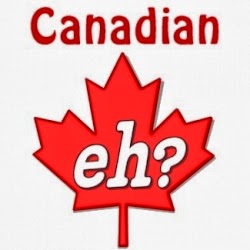Whether it’s for acting a specific foreign character in a movie, television show, play, or if it’s doing silly impressions just for fun with your friends, I’m sure most of us have tried to put on a foreign accent while speaking English. For example, pretending to be German but not actually knowing how to speak the language so we just try to put on an accent that would sound German. In today’s blog post, I’d like to look into some foreign accents from Europe, such as the German accent and the Russian accent. Here we go.
 For starters, with the German accent, we pronounce some letters different than us due to the influence of their language: d’s become t’s (“drinking” sounds like “trinking”), w’s becomes v’s (“where” changes to “vere”), v’s sound more like f’s (fast sounds like “vast”), and th sounds like a z (“that” becomes “zat”). There are a lot more different pronunciations they make opposed to ours, but these are the most common. Now if you put all of it together, you can translate a random phrase to it sounding a little more German, for instance “I understand that you are from this country” to “I ahnderstand zat yew ahre from zis cahntry”.
For starters, with the German accent, we pronounce some letters different than us due to the influence of their language: d’s become t’s (“drinking” sounds like “trinking”), w’s becomes v’s (“where” changes to “vere”), v’s sound more like f’s (fast sounds like “vast”), and th sounds like a z (“that” becomes “zat”). There are a lot more different pronunciations they make opposed to ours, but these are the most common. Now if you put all of it together, you can translate a random phrase to it sounding a little more German, for instance “I understand that you are from this country” to “I ahnderstand zat yew ahre from zis cahntry”. Now for the Russian accent, it is known for sounding more aggressive. I feel as though it has numerous similarities with the German accent, such as hearing a lot of v’s and z’s. While speaking in English with a Russian accent, you have to remember that whatever character you’re playing doesn’t speak it very well since it’s not their mother tongue so the sentences would sound shorter due to ignoring the articles and prepositions, like the, to and a, before words. For example, “I’m going to the store to get a light bulb” would sound like “I go to store get light bulb” with a Russian accent.
Now for the Russian accent, it is known for sounding more aggressive. I feel as though it has numerous similarities with the German accent, such as hearing a lot of v’s and z’s. While speaking in English with a Russian accent, you have to remember that whatever character you’re playing doesn’t speak it very well since it’s not their mother tongue so the sentences would sound shorter due to ignoring the articles and prepositions, like the, to and a, before words. For example, “I’m going to the store to get a light bulb” would sound like “I go to store get light bulb” with a Russian accent.Sources:
https://sites.google.com/site/lrnthaccnt/how-to-do-a-german-accent
https://sites.google.com/site/lrnthaccnt/how-to-do-a-credible-russian-accent





